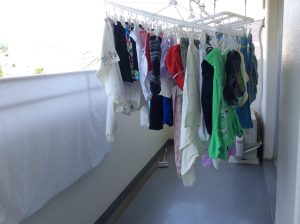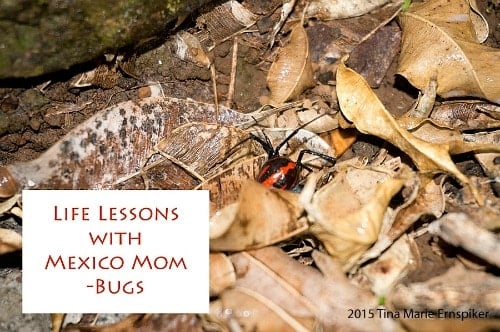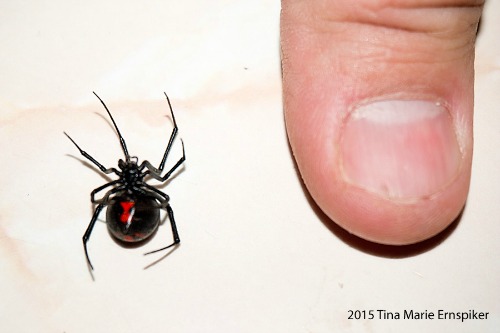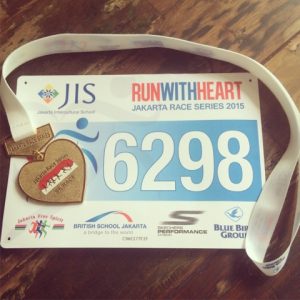
by Shaula Bellour (Indonesia) | Jun 11, 2015 | 2015, Awareness, Bilingual, Communication, Cultural Differences, Expat Life, Eye on Culture, Family, Indonesia, Living Abroad, Shaula Bellour, Travel, World Motherhood
 As a British-American family living in Indonesia, we seem to speak a special sort of English in our house. Although our kids attend the British school, their classmates are from all over the world and the accents they hear are typically mixed. While my daughter generally sounds American, my son tends to favor British vocabulary – he enjoys maths, plays football (never soccer) and cheerfully reports that his day was “brilliant.”
As a British-American family living in Indonesia, we seem to speak a special sort of English in our house. Although our kids attend the British school, their classmates are from all over the world and the accents they hear are typically mixed. While my daughter generally sounds American, my son tends to favor British vocabulary – he enjoys maths, plays football (never soccer) and cheerfully reports that his day was “brilliant.”
To an American ear, my own accent has a British sound, while to a Brit, my British husband sounds subtly American. We joke that our accents have merged over time, which is further reinforced by living outside of our home countries for many years.
In our family we use British and American terms interchangeably – we have torches and flashlights, throw away rubbish and trash, wear pants and trousers, and occasionally enjoy sweets and candy. Our kids have recently started to recognize and understand some of the differences. The other day my son informed me that I was pronouncing “vitamin” wrong. I explained that I say it differently and my daughter quickly jumped in with her support: “It’s okay Mommy, I say it that way, too!” Tomayto, tomahto…anything goes in our house.
In a few weeks we will be heading back to the US for summer break. While our friends and family are generally charmed by the kids’ way of speaking (“so cute!”), my own hybrid accent mostly confuses people. I once had a job interview after moving back to the US from abroad and the CEO took me aside afterward to excitedly ask where I was from. “I’m from Seattle originally,” I responded. “No, where are you really from?” he continued. “Uh…Seattle?” Clearly not the exotic hometown he expected.
Although it shouldn’t bother me, sometimes it does.
When I first studied in the UK many years ago I was very self-conscious about my American accent. The young people I worked with would often imitate me and I was continually aware of standing out whenever I opened my mouth. Now, with my mixed pronunciation, I blend in more easily and comfortably slip into colloquial Brit-speak whenever I visit. I still sound different but I don’t mind.
Yet for some reason, it does bother me to be labeled as different in the place I am from. Partly I think it’s the perception of being “other” that gets to me. Living in Indonesia, I am used to feeling this way. But when I return to my hometown, I want to be able to fit right back in – even if it’s been years (well…decades) since I’ve lived there.
Despite my pre-vacation efforts to Americanize my accent, I can still hear the well-enunciated sounds tumbling out of my mouth and the British-style intonation. I try to re-train myself to soften my Ts, pronounce my Rs and say “really” instead of “quite”. Yet as much as I try to flick the American switch in my brain, I know I won’t always get it right. I’m bound to ask where the “toilet” is instead of the restroom and I might accidentally order in Indonesian, just to further confuse things.
I sound different because I am different. Perhaps it’s time to embrace it.
This is an original post for World Moms Blog by our American-mom-of-twins writer, Shaula Bellour, currently residing in Indonesia.
The image used in this post is credited to Jeremy Keith. It holds a Flickr: Creative Commons attribution license.
Shaula Bellour grew up in Redmond, Washington. She now lives in Jakarta, Indonesia with her British husband and 9-year old boy/girl twins. She has degrees in International Relations and Gender and Development and works as a consultant for the UN and non-governmental organizations.
Shaula has lived and worked in the US, France, England, Kenya, Eritrea, Kosovo, Lebanon and Timor-Leste. She began writing for World Moms Network in 2010. She plans to eventually find her way back to the Pacific Northwest one day, but until then she’s enjoying living in the big wide world with her family.
More Posts

by Tina Marie Ernspiker | May 29, 2015 | 2015, Expat Life, Family, Life Lesson, Living Abroad, Mexico, Motherhood, Moving, World Motherhood

As a wife of one and a mom of four, it seems like I am always learning and discovering! I know I am not alone. Let’s just admit it: The world is a big place, life is a lesson, and children can be the best teachers. Normally my series, Life Lessons with Mexico Mom, is hosted on Los Gringos Locos, but today I am posting here on World Moms Blog.
Here are my insights and experiences as a Mexico Mom for this week:
Life Lesson 80: Wheelchairs and topes don’t mix.
Tope is the Spanish word for speed bumps. We have lots of speed bumps in Mexico. I think it is because there are many children and families without vehicles that walk everywhere. During the month of May my parents are here with my dad’s wheelchair and ramp attached to the rear of their SUV. Dad was driving through town on his first day here and didn’t see the giant tope in the street. I swear he almost lost the wheelchair and ramp on that tope. The batteries for the wheelchair popped off and landed in the street. We stopped, along with a nice biker who helped us pick up the batteries and put them back on the wheelchair.
Life Lesson 81: Chickens do cross the road in Mexico.
We have the cutest family of chickens that can usually be found in the median of our busiest street in Uruapan, Michoacan, Mexico. One of the window-washers brings his chickens with him when he works. The chickens free range on the grass in the median, which is very large and more of a park area with trees, flowers, and benches. One of the chickens has a little chick that follows her around. You can see them crossing the road and stopping traffic. It’s a hoot!
Life Lesson 82: Before you rent a home in Mexico, make sure it’s from the owner.
We are renting a home and apparently the dueño, or landlord, is not the owner. Honestly we don’t know all the details and the whole deal is a bit shady, but we are moving for the fourth time in 18 months, today! I am going to post the whole story, or at least our side of it, very soon on my blog. Stay tuned for this crazy story of renting a home in Mexico, coming soon!
What life lesson did you learn this past week? Please share it with us below. We want to hear your thoughts from around the world!
This is an original post to World Moms Blog by Tina Marie Ernspiker. Tina can be found blogging over at Los Gringos Locos. She is also on Facebook and Twitter.
Photo credit to A. Hurst Photography

by World Moms Blog | May 14, 2015 | 2015, Awareness, Being Thankful, Celebrations, Child Care, Cultural Differences, Culture, Death and Dying, Expat Life, Eye on Culture, Family, Global Citizenship, Gratefulness, Guest Post, Home, Identity, Inspirational, International, Life Lesson, Living Abroad, Milestones, Motherhood, Moving, Multicultural, Parenting, Relocating, Respect, Responsibility, Singapore, UAE, World Events, World Moms Blog, World Motherhood, Younger Children
 Two months ago, we had our first experience going to a medical clinic in a foreign country.
Two months ago, we had our first experience going to a medical clinic in a foreign country.
Come to think of it, we managed nearly four years in Paris without needing to do so. It helped that we lived across the street from a pharmacy (a distinct Parisian ‘landmark’). Those days, we relied heavily on self-medication and the advice of our friendly pharmacist.
This time around, these options couldn’t cut it. Our 22 month-old daughter had already been ill for a week and wasn’t getting any better.
Having only recently arrived in Abu Dhabi, we had no idea about which pediatrician to consult. Armed with a recommendation from a mum’s group, I called up only to find out with some panic that the earliest appointment was in four days’ time. After some frantic telephone conversations with my husband, we made a dash for a walk-in clinic which closed its doors at 1pm.
While this may be common in many countries, it is not something that we would have encountered back home. In Singapore, we could always see our pediatrician at short notice after a quick phone call. This was always reassuring, especially for first-time parents who made a big deal out of every rise in temperature or unusual cough.
Our experience at the clinic made me a little homesick and left me wishing for many things, big and small, that we often take for granted back in Singapore.
This feeling was further intensified a few days later, when news broke that Singapore’s first Prime Minister, Mr. Lee Kuan Yew, had passed away.
Amid the numerous news reports and posts on social media from friends and folks back home, I felt a keen sadness for the nation’s loss of the man who made Singapore what she is today.
Countless politicians, heads of state, journalists and media outlets inundated us with statements, commentaries and judgements on the life and impact of our “giant of history”. I leave this to them.
What I’ve been mulling over, what preoccupies me as a parent, is what Mr. Lee Kuan Yew’s legacy entails; it’s what he has left Singaporeans, our future generations and my daughter.
Every opportunity is available to my daughter:
- She has access to education from an early age and will never have to struggle for the right to go to school.
- She can run around freely in our neighbourhood and enjoy her childhood innocence in playgrounds.
- She can go out with her mother now, or alone in the future, without restriction or the necessity of being accompanied by a male presence.
- She can travel around our little island on public transport, and see marvellous skyscrapers and iconic buildings, all set amidst verdant flora.
- Her safety outside our home is not an issue that her father or I have to worry our heads about, neither does she need to be anxious over whether her parents will get home safely at the end of the day.
- She will have friends from so many different cultures and nationalities, and she can be proud of being able to claim heritage from multiple cultures.
Every opportunity awaits my daughter, for her to make something out of it.
For these and many other reasons, my heart hangs heavy and yet swells with pride for our tiny island and I long for the next time we arrive again at Changi Airport, to see the sign “Welcome Home”. It is a home and country that a visionary built. It may not be a perfect place but my daughter has so many things to be thankful for.
This is an original, first post to World Moms Blog from KC, who is currently stationed with her family in Abu Dhabi but born and bred in Singapore. This is their first international job posting with their daughter, TT, who is now 22 months old. You can read more about Singaporean-expat life through KC’s eyes on her blog, Mummy In Transit, or through her Facebook page at www.facebook.com/mummyintransit .
The image used in this post is credited to the author’s friend, Jacob O’Quinn, and is used here with permission.
World Moms Blog is an award winning website which writes from over 30 countries on the topics of motherhood, culture, human rights and social good. Over 70 international contributors share their stories from around the globe, bonded by the common thread of motherhood and wanting a better world for their children.
World Moms Blog was listed by Forbes Woman as one of the "Best 100 Websites for Women 2012 & 2013" and also called a "must read" by the NY Times Motherlode in 2013. Our Senior Editor in India, Purnima Ramakrishnan, was awarded the BlogHer International Activist Award in 2013.
More Posts

by Melanie Oda (Japan) | Apr 17, 2015 | 2015, Awareness, Cooking, Cultural Differences, Culture, Domesticity, Expat Life, Eye on Culture, Family, Food, Health, Home, Identity, International, Japan, Life, Life Balance, Living Abroad, Maternal Health, Me-Time, Motherhood, Multicultural, SAHM, Social Equality, Stress, Time, Traditions, Womanhood, World Motherhood
 I start my morning here in Japan the same way every day: by cleaning out the drain trap.
I start my morning here in Japan the same way every day: by cleaning out the drain trap.
Not very pretty, I suppose, but I’ve learned the hard way that it needs to be done frequently and well. The drain traps here in Japan are metal mesh to prevent food from going down the drain. They get gross very quickly.
I’m pretty sure I started out my days when I lived in the US with a cup of coffee, which seems quite glamorous by comparison!
In spite of our gains in education or employment opportunities over the last century, much of our time as women gets taken up by mundane household tasks like this. Women all around the world are doing the same kind of things: laundry, food preparation, cleaning, child care, though in very different ways.
It makes me curious. How much of your time gets spent on “daily chores?” What kinds of things do you need to do every day? Do you do them alone, or do you have help?
Perhaps it is a boring topic, but for comparison I thought I would share a little bit of what housework is like here in Japan.
Laundry gets done daily in most families. We have washing machines, but most people don’t have dryers. In a country with cold winters, humid summers, and a rainy season, keeping up with the laundry feels like a daily battle! When the weather is not cooperative, laundry gets hung from curtain rails or any other overhang that can be found indoors. We have to bob and weave our way around the house. Imagine that Catherine Zeta Jones movie, but with laundry instead of lasers.
I do the shopping most days as well. This is quite common here in the greater Tokyo area, where storage space is limited and many people do not have cars to allow buying in bulk. Milk is sold by the liter; laundry detergent in 500ml bottles. The biggest shopping challenge is buying rice, which comes in 5 or 10kg bags.
I need to dust and vacuum every day. This is much more often than we did in the US growing up. I’m not sure why Japan is so dusty. Could it be the tatami floors? The single pane windows? The small living space? And more important than why, how can I make this dust accumulation stop?
Japanese cuisine seems to be gaining in popularity around the world. Many Japanese people eat a full meal in the morning (though this is slowly changing,) as well as at lunch and dinner. Japanese bento are also getting a lot of attention on the Internet for being nutritious as well as visually appealing. Overwhelmingly, the cooking is done by women. (Personally, since my children’s lunch is provided by the school, most days I cook twice.)
Like most families here, we have a gas stove-top, a rice cooker, and a microwave combined with an electric oven for cooking. My mother-in-law has a separate gas burner that can be placed on the table for doing things like sukiyaki or okonomiyaki, foods that are consumed as soon as they are cooked by the family from the same dish. My children are still a bit too small for me to attempt this at home.
I think many of us around the world are doing these same things, but the nitty-gritty of how we get it done and how often we do it are different. I can’t help but wonder what housework says about the values of the culture.
In the US, for example, many families take pride in a well-decorated home. In Japan that is much less important. (Perhaps because many women are spending all that time dusting and dodging laundry….)
What kinds of things are included in your daily duties? How do you feel about doing them?
This is an original post to World Moms Blog from our writer in Japan and mother of two, Melanie Oda.
The image used in this post is attributed to the author.
If you ask Melanie Oda where she is from, she will answer "Georgia." (Unless you ask her in Japanese. Then she will say "America.") It sounds nice, and it's a one-word answer, which is what most people expect. The truth is more complex. She moved around several small towns in the south growing up. Such is life when your father is a Southern Baptist preacher of the hellfire and brimstone variety.
She came to Japan in 2000 as an assistant language teacher, and has never managed to leave. She currently resides in Yokohama, on the outskirts of Tokyo (but please don't tell anyone she described it that way! Citizens of Yokohama have a lot of pride). No one is more surprised to find her here, married to a Japanese man and with two bilingual children (aged four and seven), than herself. And possibly her mother.
You can read more about her misadventures in Asia on her blog, HamakkoMommy.
More Posts

by Tina Marie Ernspiker | Mar 27, 2015 | 2015, Expat Life, Home, Kids, Life Lesson, Living Abroad, Mexico, Moving, Parenting, World Motherhood, Younger Children

As a wife of one and a mom of four, it seems like I am always learning and discovering! I know I am not alone. Let’s just admit it: The world is a big place, life is a lesson, and children can be the best teachers. Normally my series, Life Lessons with Mexico Mom, is hosted on Los Gringos Locos, but today I am posting here on World Moms Blog.
This week’s life lessons are all about bugs. Spiders, cockroaches, bees, and scorpions…oh my! Yikes! Our new home in Uruapan, Michoacan, Mexico was vacant for three years before we moved in last month. The bugs were having a field day, then we arrived. They officially declared our move an invasion and initiated a full scale assault. Our comeback was fumigating with a strong pesticide. Here are my insights and experiences as a Mexico Mom, living with bugs:
Life Lesson 59: I hate Mexican cockroaches just as much as U.S. cockroaches. I don’t know exactly what it is about cockroaches but I hate these creepy, crawly critters. They give me the chills. Maybe it’s because they are associated with rotten food. At least in my mind, I associate them with rotten food. They skittle about and come in all sizes. We have some big ones in Mexico!
Life Lesson 60: Bees go to light just like moths. We have bees on our roof beneath the clay tiles. Someone obviously tried to smoke the hive and get rid of them but it didn’t work. At night the bees go to light. The street light over our balcony, our bedroom light, and our bathroom light. Mr. Curious, aka Tristan, stepped on one and got stung. He is not allergic so no serious damage was done 🙁
Life Lesson 61: Scorpions are part of the Arachnid class just like spiders. They both have eight appendages. We have seen three scorpions in our house. They were taking a leisurely stroll, till they met the bottom of a shoe. One was smaller then my pinkie nail. We also have our share of spiders. The best one being the giant Black Widow you see in the photos. We watched her die. Her struggle was sad but I can’t imagine what she could have done to one of the kids. I dislike spiders almost as much as cockroaches!
What life lessons did you learn this past week? Please share it with us below. We want to hear your thoughts from around the world!
This is an original post to World Moms Blog by Tina Marie Ernspiker. Tina can be found blogging over at Los Gringos Locos. She is also on Facebook and Twitter.
Photo credits to the author.

by Shaula Bellour (Indonesia) | Mar 12, 2015 | 2015, Awareness, Being Thankful, Exercise, Expat Life, Family, Health, Hobby, Identity, Indonesia, Inspirational, Life, Life Balance, Life Lesson, Living Abroad, Maternal Health, Me-Time, Motherhood, New Year's Resolutions, Parenting, Responsibility, Running, School, Shaula Bellour, Womanhood, World Motherhood
 Last Sunday I ran my first 5K race. I still can’t believe that I actually did it – and in the tropical heat, no less. Although I have vaguely considered it a worthy goal, running an actual race wasn’t on my radar even two months ago.
Last Sunday I ran my first 5K race. I still can’t believe that I actually did it – and in the tropical heat, no less. Although I have vaguely considered it a worthy goal, running an actual race wasn’t on my radar even two months ago.
It turns out that 2015 is the year of living dangerously…out of my comfort zone.
My kids often talk about being “risk-takers”. It is one of the ten traits included in the school Learner Profile and students are encouraged to be inquirers, knowledgeable, thinkers, communicators, principled, open-minded, caring, risk-takers, balanced, and reflective. While these traits are all deemed equally important, being a risk-taker is a concept that seems to be especially resonant outside of school too: “I am a risk-taker: I am willing to make mistakes. I am confident and have the courage to try new things.”
For my generally confident (and fruit-averse) daughter, this might mean: “Look Mommy, I’m a risk-taker, I’m eating a mango!” My son takes a more reflective approach – acknowledging when he feels nervous about doing something and emboldening himself with his risk-taker status to eventually take the plunge. Though risk-taking will probably have a different connotation when they are older, I embrace what it means for them now – trying new things and not being afraid to make mistakes.
It’s an important lesson for grown ups, too.
In January, after three years of living in Jakarta, I was starting to feel like my daily life was becoming somewhat routine. Gym, work, grocery store, repeat. To change things up, I found myself saying YES to things that I might not usually consider.
When a friend asked if I wanted to join their early morning running group, I said YES. I knew that the group would likely be too advanced for me but figured that I wouldn’t know if I didn’t try. “What’s the worst that could happen?” I asked myself. I would walk, that’s it. I did walk some at first, but I set my own goals and improved each week. Now we’re training for a 10K.
When another friend asked if I would like to be part of their dance group for an upcoming fashion show event, I said yes to that too. Other friends and even my husband were surprised. Performing a dance routine in front of a huge crowd is WAY beyond my comfort zone, but again I thought: “Why not?” In this case I try not to think about the worst that could happen (falling off the stage comes to mind) but I’m proud of myself for doing it and am actually looking forward to the big night.
I’ve continued with the YES theme in other areas of my life and have already seen positive changes: improved health, new friendships, new possibilities. I’ve realized that pushing my boundaries in this way is also about adjusting my own perceptions of myself. “Oh, but I’m not a runner,” I would repeatedly explain, trying to somehow qualify my actions.
Well now I am a runner. And a dancer. Among many other things.
Life begins at the end of your comfort zone.
Our kids may not recognize some of the bigger risk-taking decisions we’ve made (like moving our lives halfway around the world), but it’s often the smaller actions that resonate the most.
It feels good for them to see that I can be a risk-taker too – I can be afraid sometimes and I can also be brave, just like they are.
When I walked in the door after the race, finisher’s medal around my neck, both kids jumped up from the couch with wide eyes. “Mommy!” my daughter exclaimed, “I didn’t know you would win the race!”
Not exactly…but YES! In my own way, I did.
What risks are you putting out there for yourself this year? How are you embracing these challenges?
This is an original post for World Moms Blog by our mom of twins in Jakarta, Indonesia, Shaula Bellour.
The image used in this post is attributed to the author.
Shaula Bellour grew up in Redmond, Washington. She now lives in Jakarta, Indonesia with her British husband and 9-year old boy/girl twins. She has degrees in International Relations and Gender and Development and works as a consultant for the UN and non-governmental organizations.
Shaula has lived and worked in the US, France, England, Kenya, Eritrea, Kosovo, Lebanon and Timor-Leste. She began writing for World Moms Network in 2010. She plans to eventually find her way back to the Pacific Northwest one day, but until then she’s enjoying living in the big wide world with her family.
More Posts

 As a British-American family living in Indonesia, we seem to speak a special sort of English in our house. Although our kids attend the British school, their classmates are from all over the world and the accents they hear are typically mixed. While my daughter generally sounds American, my son tends to favor British vocabulary – he enjoys maths, plays football (never soccer) and cheerfully reports that his day was “brilliant.”
As a British-American family living in Indonesia, we seem to speak a special sort of English in our house. Although our kids attend the British school, their classmates are from all over the world and the accents they hear are typically mixed. While my daughter generally sounds American, my son tends to favor British vocabulary – he enjoys maths, plays football (never soccer) and cheerfully reports that his day was “brilliant.”






















